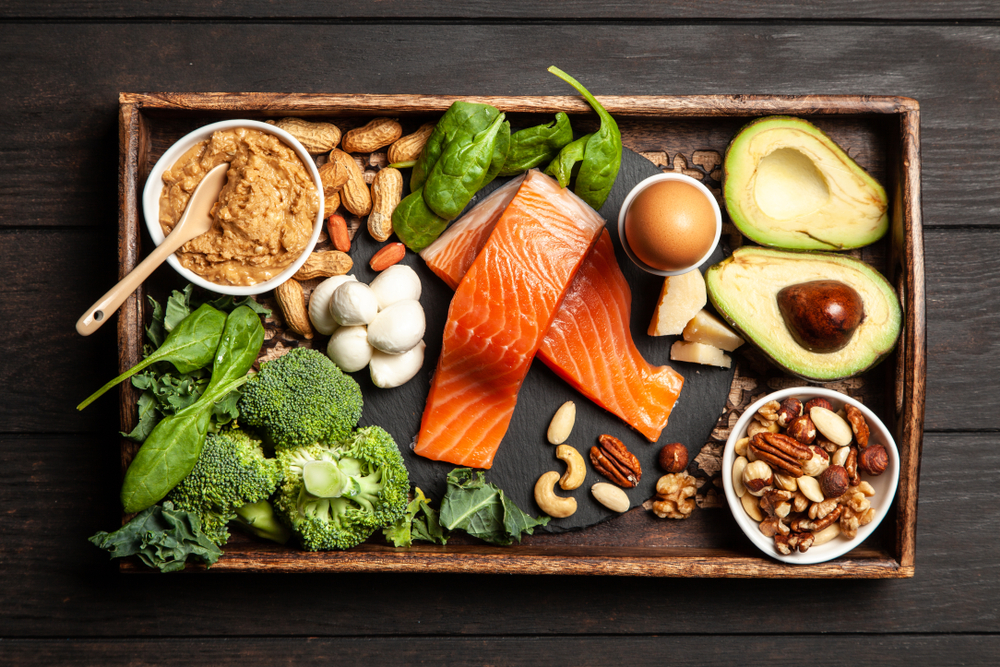It is one of the excellent way to lose excess weight, while still eating all the nutritious foods that you and your baby needs. However, you should not eat a strict low-carb diet, as it can – in extremely rare cases – be potentially dangerous when breastfeeding. Choose a more moderate low-carb diet to be safe, with at least 50 grams of carbs per day.
Is It Okay to Try A Keto Diet While Nursing?
Strict Low Carb And Breastfeeding
In a normal situation people can eat as few carbs as they want – the body can handle it. Not eating carbohydrates in this situation can possibly lead to a dangerous condition called ketoacidosis, in rare cases.
First, let’s go over the basics of a keto diet. The idea is that you are eating lots of healthy fats, protein and minimal carbs to stay in ketosis. That means basically that your brain is functioning off ketones, rather than glucose. Ketones are made from fat, so essentially you are burning and using fat as fuel, not carbs. If you are using fat as fuel, then your fat stores will be used to fuel your brain.
The foods you focus on are ones like butter, cheese, ground beef, bacon, eggs, avocados, nuts and other high-fat foods. The carbs consist of vegetables like broccoli, spinach, cauliflower, lettuce, green beans etc. Not much fruit is eaten except for berries and low-sugar fruits.
First, babies are using fats as their main source of energy. They are basically in ketosis according to a few studies (study 1 and study 2), fat is fabulous for newborns and healthy for breastfeeding mamas. Breast milk is 50-60% fat, so by eating lots of fat, you are ensuring your milk has all the fat it needs as well. Perfect Keto quotes a study done in 2009 that looked at the effects of a LCHF (low carb high fat diet) and a HCLF (high carb low fat diet) on breast milk and the infants.
Research Showed The Following
Regardless of the diet, daily breast milk production and daily infant breast milk intake remained the same. Neither diet had an effect on milk lactose or protein concentration; however, milk fat concentration and the energy content of milk were higher during the LCHF diet than the HCLF diet. Energy intake (kcal/day) was higher during the LCHF diet than during the HCLF diet in infants. The average maternal energy expenditure and the sum of maternal energy expenditure plus milk energy content were higher during the LCHF diet than during the HCLF diet.
Since the beginning of time cave women have been breastfeeding children with no carbs, sugar or grains really. Completely excluding grains, processed carbs and sugar shouldn’t affect your supply at all, unless you drop your calories tremendously from eliminating those foods.
Eating enough veggies to ensure you get vitamins and nutrients, as well as drinking enough water to digest the fat and protein is going to be super important for a keto diet while breastfeeding. In addition, monitoring your unique body is probably the most important part. Your body will tell you if something isn’t quite right. So will your baby.Ora Organic is top choice if you need a good protein powder that doesn’t taste bad, and is super safe for breastfeeding mamas.
There’s no problem with the diet at all in general for breastfeeding. If feel great, and you’ve already adjusted to being in ketosis before you start breastfeeding, chances are you will do great and produce plenty of milk. If you start the keto diet, postpartum as a means to lose the baby weight, just start slow. You can work on eliminating carbs little by little, so your body can adjust. Also, just keep note of how your baby feels and your milks supply. If you notice that your milk supply starts to drop, don’t just binge on bread or cookies in a panic. There are so many factors that go into breast milk production. Once your supply is back, try eliminating carbs at one meal for a few days, then eliminate for two meals. Slowly find your happy place of low carb and high milk supply.
A program that first heals your body through specialized movements and nourishing foods. Postpartum body needs special care in the first 4-6 weeks where you focus on regaining strength and properly fueling your body for breastfeeding.
This then moves you into gaining physical fitness back. Lastly, workout program to combine with a meal plan to help you lose the baby weight, not your milk.
Resources:
